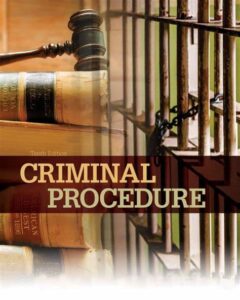TYPES OF CRIMINAL CASES

This page discusses about the types of criminal cases and modes of criminal complaints which can be filed by a person. Apart from that the type bails which can be applied before the court.
FIRST INOFORMATION REPORT (FIR)
First Information Report is that document which records the first-hand information received by the Police regarding a cognizable offence. A cognizable offence is an offence which is punishable with imprisonment for 3 years or more. An FIR is registered by the Police under Section 154 of the Code of Criminal Procedure 1973 (now under Section 173 of the Bhartiya Nagarik Suraksha Sanhita, 2023).
CRIMINAL COMPLAINT
Apart from filing a FIR, a person can directly file a criminal case by filing a complaint before Judicial Magistrate and thereafter the Learned Judicial Magistrate take cognizance of the offence himself or otherwise, if required, can order an investigation by registering an FIR to the Police. A Complaint used to be filed under Section 190 r/w Section 200 of Code of Criminal Procedure 1973, if required, along with an application under Section 156(3) of Code of Criminal Procedure 1973 for investigation by Police in the case.
Now the same is being filed under Section 210r/w 223 of Bhartiya Nagrik Suraksha Sanhita 2023 and if required, along with an application under Section 156(3) of Code of Criminal Procedure 1973 for investigation by Police in the case.
PETITION UNDER SECTION 482 OF THE CODE OF CRIMINAL PROCEDURE 1973 (QUASHING PETITION) FILED BEFORE HIGH COURT
(Now under Section 528 of the Bhartiya Nagarik Suraksha Sanhita, 2023)
A person can file a petition under Section 482 of the Code of Criminal Procedure 1973 for quashing of the complaint, FIR, Chargesheet and criminal proceedings initiated against him. This petition can only be filed before the Hon’ble High Courts, which have inherent jurisdiction given under Section 482 of the 1973 Code to prevent abuse of the process of law or otherwise to secure the ends of justice.
Therefore, if you think that a false complaint or FIR or criminal proceedings has been initiated against you only to harass you or coerce you into doing something. As well as there is no evidence against you and you are innocent and have been wrongly framed in a case. Then this is the remedy for you.
BAIL APPLICATIONS
Criminal Cases also includes bail under Code of Criminal Procedure 1973 and Bhartiya Nagarik Suraksha Sanhita 2023. Hon’ble Supreme Court of India has many times reiterated that Bail should be the Rule and Jail should be an exception.
Bail can be distinguished into Regular Bail, Anticipatory Bail and Interim Bail.
A person is required to apply for bail before the court when he has been accused of or has apprehension to be arrested for any non-bailable offence.
Section 437 provides for application of bail before the Learned Judicial Magistrate. This can be termed as regular bail before the Learned Judicial Magistrate.
Section 438 provides for bail in cases where there is apprehension of arrest. Then an appropriate application for bail may be filed before the Hon’ble High Court or Learned Sessions Court. This is termed as anticipatory bail.
Interim Bail is a sub-category of anticipatory bail, where a person seeks bail from the court in a specific situation, like where the person is apprehending arrest by police authorities of a particular District or State, and he is residing in different District or State. In such case, that person can file an application for interim bail before the Court having territorial jurisdiction over the place where he is residing so that he can have some time to go and file an application for bail before such court having territorial jurisdiction over the place where the offence is alleged to have taken place or where the FIR or Complaint has been lodged.
Section 439 states that the Hon’ble High Court and Learned Sessions Court have special powers to grant bail to an accused person who has been in custody. This is Regular Bail before the Learned Sessions Court and Hon’ble High Court.
If a person is not granted bail by the Hon’ble High Court such person can also seek bail from the Hon’ble Supreme Court of India by filing a Special Leave Petition challenging the order of the Hon’ble High Court rejecting the bail.
It is necessary to understand that Bail is granted by Hon’ble Courts upon consideration of various factors and circumstances related to the case and prior antecedents of the person seeking the bail. It is based upon sole discretion of the Hon’ble Courts.
Certain factors which are bound to be considered while granting or rejecting the Bail are:
- Nature of the offence, graver the offence lesser likelihood of bail
- Prior antecedents of the person seeking the bail, the more civil the person has been the better the chances are for bail
- Stage of the case, like it is at the stage of investigation or trial has begun
- Flight Risk, i.e. chances of the person seeking bail to run away
- Public Safety, i.e. threat to the public from the person seeking the bail